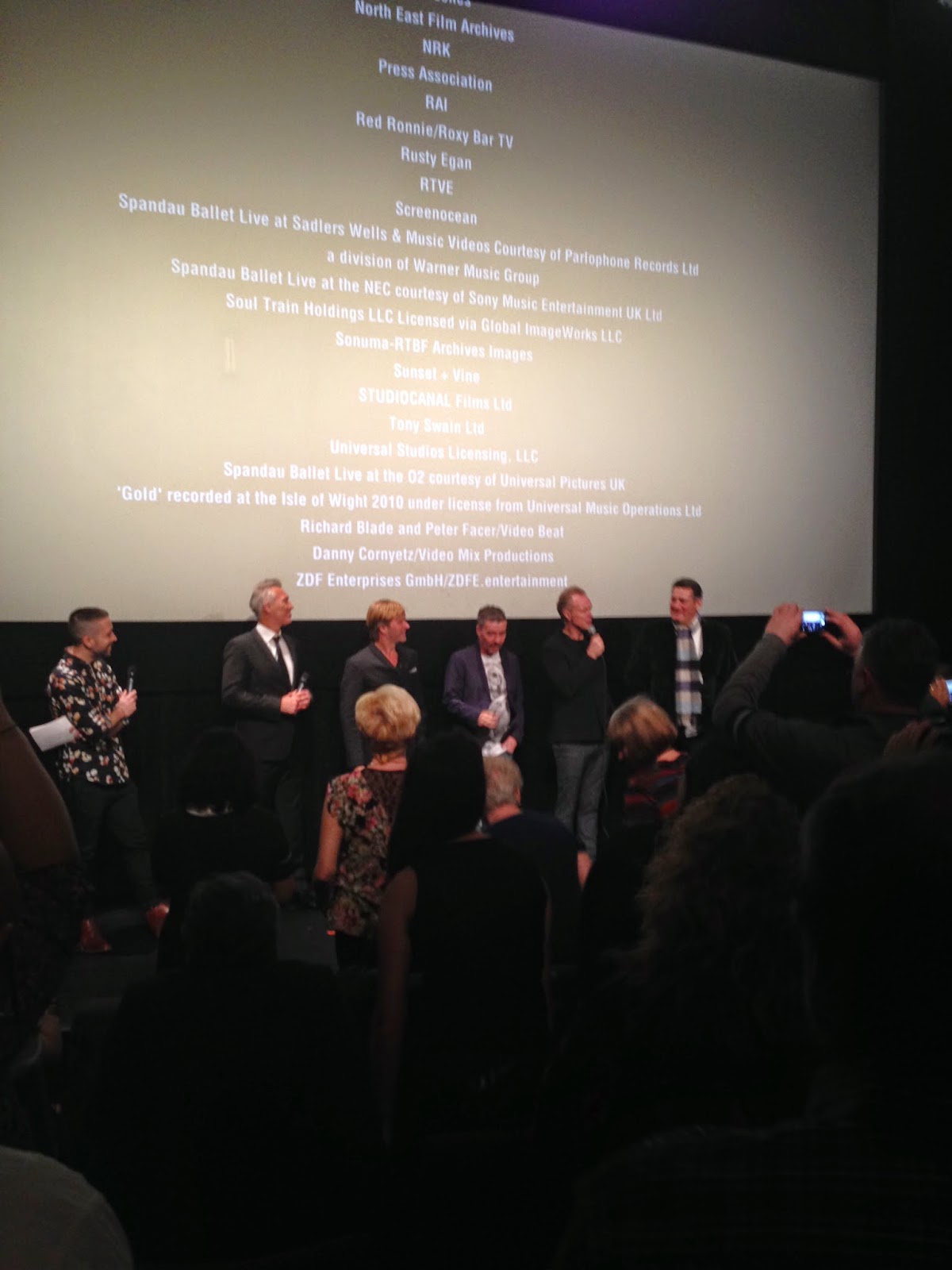 |
| Spandau Ballet at IFC Center |
It’s hard to
imagine now how revolutionary Spandau Ballet were when they burst onto the music
scene in 1981. Their new documentary, Soul Boys of the Western World, makes a case not just for Spandau Ballet but for
the entire “New Romantic" scene from which they came.
Set against the
backdrop of Margaret Thatcher, the miners’ strike and the economic turmoil that
surrounded England in the early ’80s, the film shows how Spandau and other “hair
bands” revolutionized not just music but also fashion, at a time when magazines
like The Face dictated what people wore.
Can you imagine a
band in 2015 wearing what Spandau’s Martin Kemp himself described as a
“Bedouin” outfit? Neither can I. (One of the interesting things about the movie
is to see the way not only Spandau Ballet’s music but style evolved as they
became more mainstream: from jodhpurs to suits by the time of their megahit
“True.”) There were several times when I was watching this movie (and also when
I watched the excellent documentary David Bowie: Five Years), when I said to myself, “This could never happen today!”
As Spandau
songwriter Gary Kemp put it in a Q&A after the movie, things were more
“mysterious” then (i.e., before the Internet) and the band was often accused of
being elitist because people couldn’t get into their shows. (“They were full,”
he explained.)
Listening to the
music with fresh ears on the theater’s great sound system, I was reminded of
what an integral part of Spandau’s sound the drums and bass were (as well as
the synthesizer). There was something erotic about their music and something
homoerotic about the band itself, and not just because they were all so good-looking.
I still can’t
wrap my mind around supposedly heterosexual male singers not only dressing in outrageous
clothes and hairstyles but also wearing makeup, yet many did (in Duran Duran and
Human League, to name just two examples). Sure, there was a gay element to the club and
music scene back then (Boy George, Marc Almond from Soft Cell), but there were
also straight guys like Human League’s Phil Oakey wearing eyeliner and
lipstick. I can’t think of any straight male singers who would do that now.
The movie follows
the usual rise and fall of music biz bios: overwhelming success at a young age,
followed by diverging career paths (the Kemps acting in The Krays) and family life interfering with touring, as
well as battles over royalties.
But I’m happy to
report that by the end of the movie the band has reconciled and no one has died
of a drug overdose.
